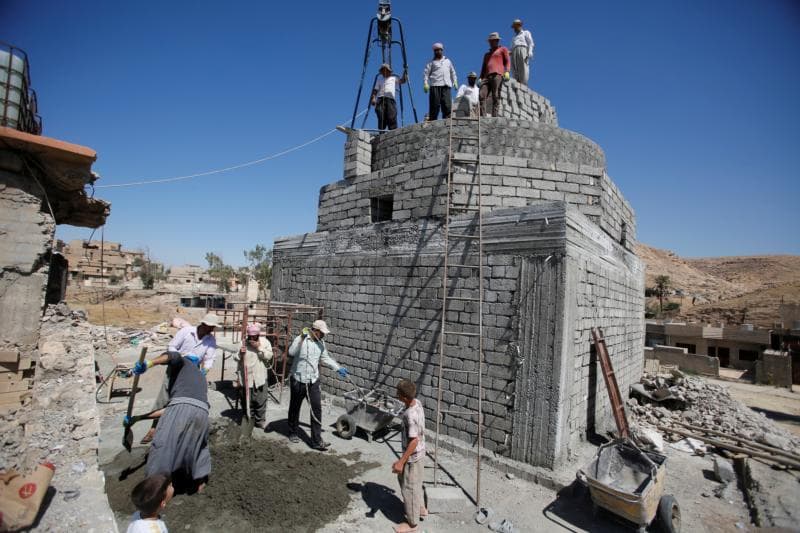WASHINGTON, D.C. — The Knights of Columbus and the U.S. Agency for International Development have agreed to collaborate in efforts to help religious minorities in the Middle East rebuild their communities destroyed by Islamic State militants.
(The Knights of Columbus are a principal partner of Crux.)
A memorandum of understanding signed Oct. 12 by representatives of the two parties formally establishes a relationship among the federal government, the Knights of Columbus and local faith and community leaders to rapidly deliver aid to uprooted and persecuted people.
“Crucially, the support will flow directly to individuals and households most in need of help,” the memorandum said.
Work initially will begin in Iraq and spread to other countries.
Supreme Knight Carl Anderson of the Knights of Columbus said in a news release announcing the arrangement that such a collaborative effort will help stabilize communities wracked by violence, forced displacement and killings at the hands of the largely depleted Islamic State, commonly known as ISIS or IS.
He said that the Knights hope “that our joint and combined efforts will bring open and concrete improvement to the situation confronting minority communities targeted by ISIS.”
He credited Vice President Mike Pence and USAID Administrator Mark Green for ensuring that “these communities are not overlooked by American government assistance.”
USAID has authorized more than $195 million in assistance to support the recovery in northern Iraq of Christian, Yezidi, Shiite Muslim and other religious and ethnic communities targeted by the Islamic State. The agency also is charged with implementing the Genocide Recovery and Persecution Response Program in the Middle East. Partnerships with private organizations are the cornerstone of the plan, according to the memorandum.
Knights of Columbus Charities has committed more than $20 million in aid to the region since 2014. It plans to donate an additional $5 million through April 2019.
The organization also released a report in 2016 detailing atrocities in the region. The report was instrumental in securing genocide designations in the region by successive U.S. secretaries of state since then.
“In the aftermath of ISIS’ campaign of genocide, Christian and Yezidi populations, and those of other religious minorities, in Iraq, Syria and elsewhere in the region are under extreme pressure,” Anderson said. “Our work with USAID is intended to help these populations survive and prosper in lands they have called home for centuries, and even millennia. We cannot allow ISIS to succeed in driving them out.”
The memorandum suggested that cooperation between USAID and the Knights of Columbus “will bring together funding not only from the U.S. government, but also from the vast network of American philanthropists to assist the survivors of genocide and persecuted communities to reconstitute themselves after years of suffering and war.”
In 2014, when the Knights began raising funds for devastated Christians and other minority religious groups, the fraternal organization led a major campaign urging Congress and the State Department to declare Islamic State terrorism an act of genocide. In a decisive step, the Knights produced a nearly 300-page report on IS atrocities against Christians that was used to support Secretary of State John Kerry’s 2016 finding that genocide was indeed taking place.
The Knights partnered with the U.S. Conference of Catholic Bishops on a “Week of Awareness” for persecuted Christians in November 2017. “We are not asking for a privileged life. We are asking for the minimum,” said Archbishop Bashar Warda of Irbil, Iraq, at a news conference that was part of the weeklong observance. “The minimum would be a sense of security and stability. … What we are really requesting is the minimum to live a dignified life.”
As part of the now-$25 million committed by the Knights to aid the beleaguered Christians, $2 million was earmarked to the rebuilding of the predominantly Christian town of Karamles on the Ninevah Plain. Karamles had been overrun by IS, which destroyed homes and desecrated churches before the town was liberated in 2017.












